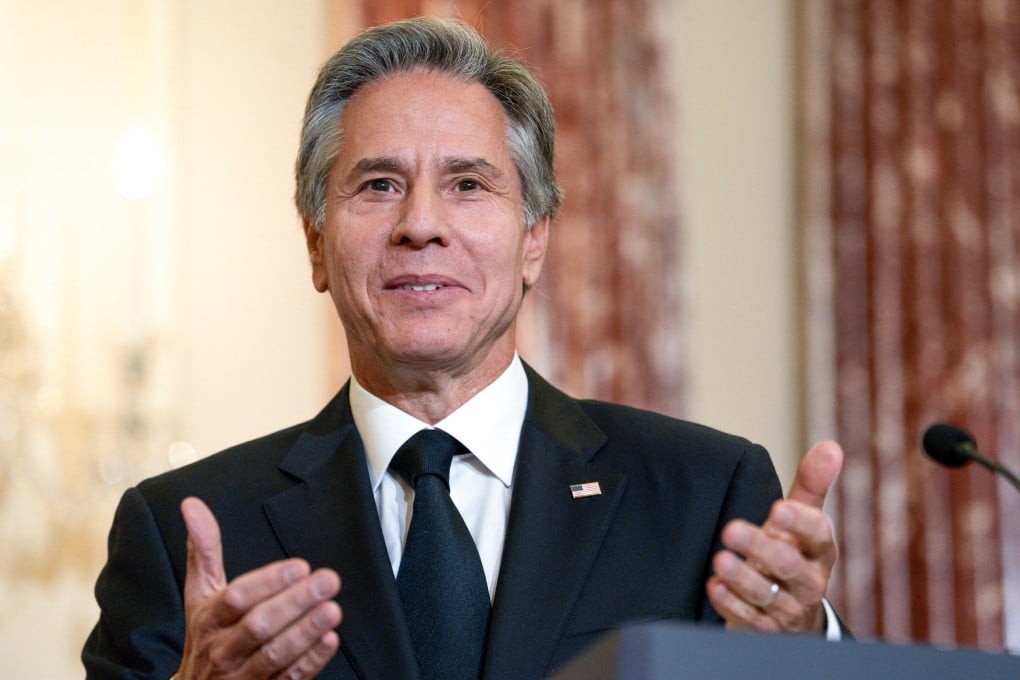Advertisement
Blinken urges China to resume cooperation with US on climate change, combating narcotics
- In National Day message, US secretary of state calls on Beijing to address global challenges together
- Row over Pelosi visit to Taiwan has seen bilateral ties plunge to lowest point in four decades
Reading Time:2 minutes
Why you can trust SCMP
57

US Secretary of State Antony Blinken has called for the resumption of Sino-US cooperation in areas where it was suspended by Beijing following senior US lawmaker Nancy Pelosi’s controversial visit to Taiwan in August.
Advertisement
“As the United States works with the international community to tackle the great obstacles the world faces today, we welcome the cooperation of the People’s Republic of China in addressing global challenges in health, climate change, counternarcotics, and other areas where our interests intersect,” he said in a message celebrating China’s National Day on Saturday.
“We hope for a peaceful and happy year ahead for the people of China”.
The message came amid rising tensions between China and the US that have seen bilateral ties plunge to the lowest point since their normalisation four decades ago. The trip to Taiwan by Pelosi, speaker of the US House of Representatives, angered Beijing and prompted it to suspend cooperation on climate change and the illegal trade in narcotics.
Beijing regarded Pelosi’s trip as an endorsement of Taiwan’s pro-independence agenda, even though Washington said its policies regarding the self-ruled island remained unchanged.
Beijing sees the island as part of China and has never ruled out the use of force to take control of it. Most countries, including the US, do not recognise Taiwan as an independent state. Washington, however, opposes any attempt to take the island by force.
US officials accused China of taking climate change and anti-narcotics efforts hostage by suspending cooperation, but Beijing said the retaliation was needed to defend its core interests and sovereignty.
Advertisement

Advertisement